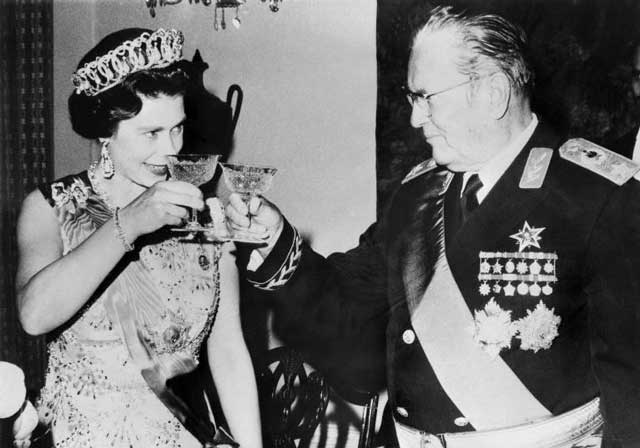
Belgrade, Serbia | AFP | Before his death 40 years ago, Josip Broz Tito, the charismatic and controversial leader of former Yugoslavia, privately shared a “regret”, his grandson recalls.
Speaking to AFP by phone, 72-year-old Joska, who proudly shares the name Josip Broz, summons the words of an illustrious grandfather who took him in as a child.
In the twilight of his life, Tito confided it was a “mistake” to allow the 1974 constitution that loosened Yugoslavia’s federal system, opening up fissures that later exploded into war.
While the man who embodied Yugoslavia did not live to witness its brutal shattering a decade after his death, he saw the seeds of discord had been planted, according to his grandson.
“From one state, we created eight small ones… we crumbled everything, that’s my biggest mistake”, Joska remembers Tito saying — an admission the powerful leader would not have made in public.
With or without the 1974 constitution, many consider Tito’s passing six years later to be the true death knell for the country he founded from the ashes of World War II.
Home to a patchwork of Serbs, Croats, Slovenes, Albanians and other communities, the nation was held together by their lifelong president’s magnetic personality — and tools of suppression.
While Tito is praised for turning Yugoslavia into one of the most prosperous communist countries, critics highlight his jailing of political dissidents and his repression of the historical grievances between communities that surged back with a vengeance in the 1990s.
As one of six grandchildren, Joska saw a different side of a man often viewed as larger-than-life.
Tito became a “father” to Joska and his sister Zlatica after their parents divorced when he was four, he told AFP.
The children lived in Tito’s home in Dedinje, a leafy and affluent Belgrade neighbourhood, until they were teenagers.
– Fish and chicken –
According to Joska, in spite of being a statesman known for his extravagant parties and a bon vivant lifestyle, Tito also “liked simple things”.
“He was relaxed with his family, he particularly liked fish and chicken, two dishes he could not enjoy at official meals” because “they are eaten with the fingers”, Joska told AFP.
He “taught us that we had to live from our work without exploiting our family name,” recalled the grandson, who was a policeman, a restauranteur and now a member of the small neo-communist party he created.
It was as a police officer that Joska helped manage the logistics of Tito’s enormous funeral, which brought together a who’s-who of global leaders, a legacy of a shrewd diplomacy that criss-crossed Cold War divides.
He last saw his grandfather on his deathbed in Ljubljana, Slovenia, where he passed away on May 4, 1980 after battling a months-long illness.
“I left for Belgrade and when I arrived I heard the news” that he was gone, he said.
While Tito’s legacy remains a topic of debate in the Balkans, Joska staunchly defends it.
He describes the comfortable lifestyles that ordinary people afforded under socialism — even if Tito was racking up huge loans to cover the costs.
“We had a real state, free school and health system, peace. Those of today can’t give us a tenth of what we had, or even repaint what Tito built,” he said.
Cedomir Antic, a historian in Belgrade, points out that Tito’s political legacy has not stood the test of time.
Of the three pillars of Titoism, “fraternity” between Yugoslav peoples and the economic model of workers’ self-management are relics of the past while the third, the global non-alignment movement, has faded from relevance.
“Self-management collapsed when Tito was still alive, non-alignment makes little sense because the bipolar world has disappeared, and fraternity evaporated in the bloody wars that marked the end of Yugoslavia,” said Antic.
 The Independent Uganda: You get the Truth we Pay the Price
The Independent Uganda: You get the Truth we Pay the Price





